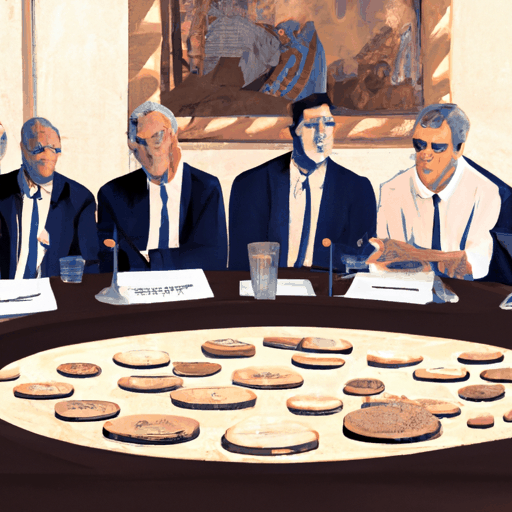
Senate Banking Committee Moves Forward With GENIUS Act for Stablecoin Regulation
By: Eliza Bennet
The Senate Banking Committee has approved the Guiding and Establishing National Innovation for US Stablecoins (GENIUS) Act, marking a significant stride towards stablecoin regulation in the United States. The bill, authored by Senator Bill Hagerty, received robust bipartisan support with an 18-6 vote, earning backing from both Republican members and several key Democrats. The Committee's decision reflects a concerted effort to solidify America’s leadership in the burgeoning digital asset space by ensuring stablecoins are safely integrated into the financial system.
The GENIUS Act lays down a comprehensive regulatory framework for the issuance and oversight of stablecoins, mandating that each stablecoin be backed by reserves in the form of US dollars, insured bank deposits, or short-term Treasury bills. The legislation also introduces a dual regulatory pathway, enabling issuers to choose between federal oversight by the Office of the Comptroller of the Currency (OCC) or supervision under state regulations that meet federal standards. This approach aims to provide the much-needed clarity for both issuers and consumers, which, according to Committee Chairman Tim Scott, has been lacking for too long.
Despite its passage, the GENIUS Act was not without opposition. Prominent Democrat Senator Elizabeth Warren voiced strong concerns, emphasizing the potential risks such as financing terrorism and sanction evasion by hostile nations. Her proposed amendments, including limiting stablecoin issuance to banking institutions, were not included in the final version of the bill. Nonetheless, Senator Cynthia Lummis, a proponent of clearer crypto regulation, expressed confidence that the bill strengthens the regulatory landscape and gives the US a competitive advantage in the global digital asset industry.
As the GENIUS Act progresses towards a full Senate vote, its passage could herald a new era of regulatory clarity for stablecoin issuers. The bill is viewed as a legislative move to enhance the dollar's competitiveness and to ensure that stablecoins are recognized as reliable financial instruments, free from cumbersome oversight by the Securities and Exchange Commission. The growing consensus indicates an optimistic outlook for America’s position in digital currency regulations.



